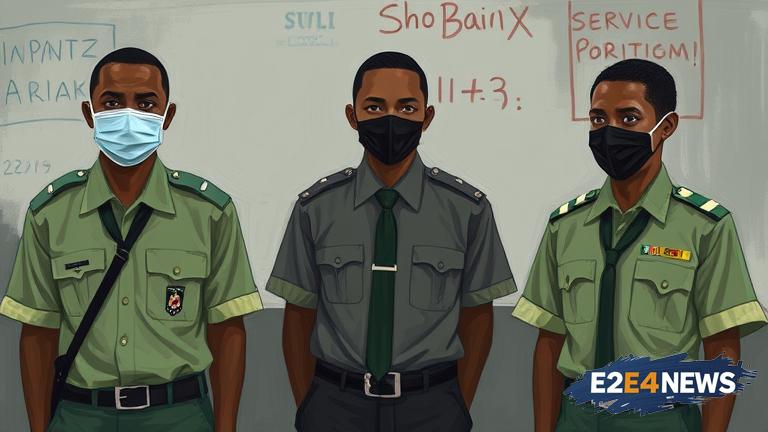The Nigerian government has emphasized the need for a uniform counter-trafficking strategy to effectively combat human trafficking. This call to action comes as the country continues to grapple with the challenges of human trafficking, which has become a major concern for the government and its citizens. Human trafficking is a complex issue that affects millions of people worldwide, and Nigeria is no exception. The country has been identified as a source, transit, and destination point for human trafficking, with many victims being forced into labor, prostitution, and other forms of exploitation. The Nigerian government has acknowledged the severity of the problem and has been working to address it through various initiatives and partnerships. One of the key challenges in combating human trafficking is the lack of a unified approach, with different countries and organizations using different strategies to tackle the issue. This has led to a call for a more standardized approach, with the Nigerian government advocating for a uniform counter-trafficking strategy that can be adopted by all countries. This strategy would involve a coordinated effort to prevent human trafficking, protect victims, and prosecute traffickers. It would also require international cooperation and collaboration, with countries working together to share intelligence, best practices, and resources. The Nigerian government has also emphasized the need for a multi-faceted approach to combating human trafficking, which would involve addressing the root causes of the problem, such as poverty, unemployment, and lack of education. This would require a range of interventions, including economic empowerment programs, education and awareness campaigns, and social protection initiatives. The government has also called for increased support for victims of human trafficking, including provision of shelter, counseling, and rehabilitation services. Furthermore, the government has emphasized the need for a strong legal framework to combat human trafficking, including laws and regulations that prohibit trafficking and provide for the prosecution of traffickers. The government has also called for increased international cooperation to combat human trafficking, including collaboration with international organizations, such as the United Nations, and other countries. This cooperation would involve sharing intelligence, best practices, and resources, as well as providing technical assistance and capacity-building support. The Nigerian government has also acknowledged the importance of civil society organizations and the private sector in combating human trafficking, and has called for increased partnership and collaboration with these stakeholders. Overall, the Nigerian government’s call for a uniform counter-trafficking strategy is a welcome development, and reflects the country’s commitment to combating human trafficking and protecting its citizens. The government’s efforts to address the root causes of human trafficking, provide support to victims, and strengthen the legal framework to combat trafficking are all important steps in the right direction. However, more needs to be done to address the scale and complexity of the problem, and to ensure that all stakeholders are working together to combat human trafficking. The international community has a critical role to play in supporting Nigeria’s efforts to combat human trafficking, and in promoting a unified approach to addressing the issue globally. By working together, we can make a significant impact in reducing the incidence of human trafficking and protecting the rights and dignity of all individuals. The Nigerian government’s advocacy for a uniform counter-trafficking strategy is a call to action that requires a response from all stakeholders, including governments, international organizations, civil society, and the private sector. We must all work together to combat human trafficking and promote a world where all individuals can live free from exploitation and abuse.
